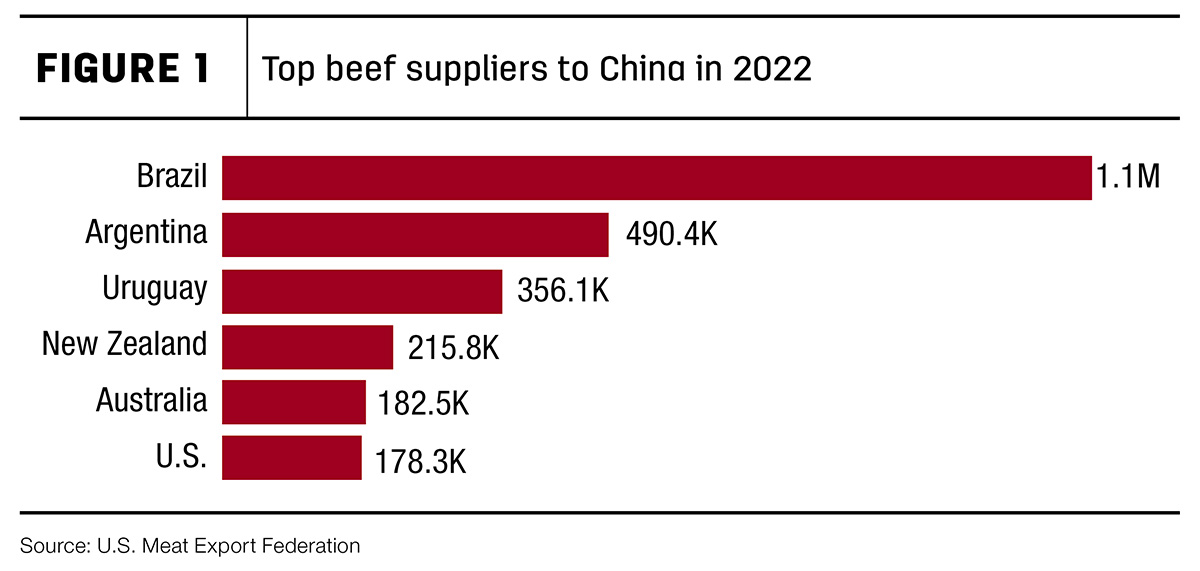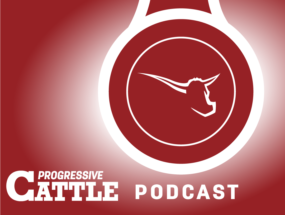Brazil’s Agriculture Ministry confirmed a case of bovine spongiform encephalopathy (BSE) on Feb. 22, triggering an automatic ban on beef exports to China. Thailand, Iran and Jordan followed suit and have temporarily banned imports of beef from anywhere in Brazil.
The case of BSE was deemed “atypical” on March 2, following an analysis by the World Organization for Animal Health (WOAH), but as of the press deadline for this article, China has not resumed importing Brazilian beef. When the last case of atypical BSE was reported in Brazil in 2021, it took China three months to allow Brazilian exports back into the country.
The ban means several global meatpackers, including JBS SA, Marfrig Global Foods and Minerva SA, will take a hit in exports and may scramble to fill the gap. Bloomberg reports that Minerva and Marfrig have said they will continue to meet Chinese demand through other plants in South America and that JBS would likely do the same.
China is the main destination for about 60% of Brazil’s total beef exports, and Brazil is currently China’s top beef supplier (Figure 1). If the trade suspension persists, experts predict exports from other top suppliers, such as Argentina and Uruguay, will get a boost. Australia may also see a boost in exports if negotiations reopen some doors that have been shut since China banned imports from six Australian beef suppliers in 2020.

The confirmation of Brazil’s second BSE case in three years spurred the National Cattlemen’s Beef Association (NCBA) to call for a U.S. ban on Brazilian exports as well, citing a “repeated pattern of delayed reporting.” In their media statement, they said Brazil’s report of the BSE case to WOAH indicated 35 days had elapsed between when the case was first identified on Jan. 18, and the date it was confirmed on Feb. 22. “This represents an unacceptable delay that is in clear violation of WOAH reporting requirements. It is clear that Brazil is incapable of prompt testing and the reporting requirements that all nations must follow when engaging in international beef trade.” The organization called on U.S. Secretary of Agriculture Tom Vilsack to suspend Brazilian beef imports indefinitely “until it has made systemic reforms and takes necessary steps to restore confidence in the nation’s ability to participate in the global beef supply.”






